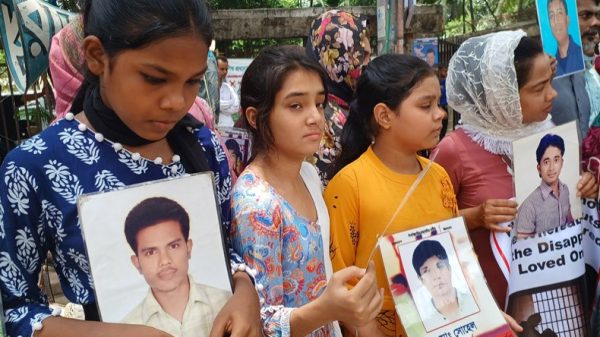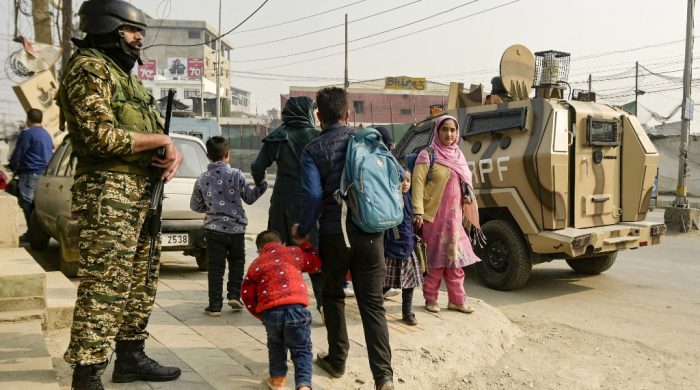Families cry for return of victims

- Update Time : Monday, June 26, 2023
- 27 Time View

The families of enforced disappearance victims on Sunday at a protest rally called on the government to return the victims to their families before Eid-ul-Azha and prosecute members of law enforcement agencies involved in their abductions.
They made the call at the rally in front of the National Press Club, organised by Maayer Daak, a platform of families of victims of enforced disappearance, ahead of International Day in Support of Victims of Torture, observed globally on June 26.
Maayer Daak coordinator Afroza Islam Akhi, chairing the rally, said that the families were unable to find their fathers, brothers, sons, and husbands even after going to many offices and courts.
‘We hope that all the missing victims will be reunited with their families soon,’ she added.
Ekram Hossain Ahad, the son of missing Chanchal Hossain, an activist of the main opposition Bangladesh Nationalist Party, said that it had been 10 years since he last saw his father.
He also urged the government to return his father so that he could celebrate Eid with him and his family.
At the rally, Ain O Salish Kendra executive director Nur Khan said that the government was not taking any effective measures to bring enforced disappearance perpetrators to justice for committing crimes against humanity.
‘Those involved in the disappearances must be identified and brought to justice to stop them, he added.
Mothers, sisters, spouses, and children of victims of enforced disappearance, holding banners, placards, and portraits of the victims, narrated their agony and how their loved ones were picked up by members of the law enforcement agencies.
Anika Islam Insha, who was an SSC examinee this year and the daughter of missing Ismail Hossain, said, ‘Everyone went with their father to the exam centre, but I did not have my father with me.’
‘If my father committed a crime, you should punish him. But why has he disappeared like this?,’ questioned Anika, the daughter of a Mirpur-based trader who went missing on June 19, 2019.
Ismail Hossain’s wife, Nasreen Jahan Srity, asked prime minister Sheikh Hasina, ‘Why can’t the government find our missing husbands, fathers, brothers, and sons in the age of technological development?’
The victim families also said that they would continue their movement to ensure punishment for enforced disappearance perpetrators.
They slammed the government for not being able to solve the cases after so many years.
Maayer Daak, in a written statement, said that its members had not received any legislative, administrative, or judicial remedy for the incidents of enforced disappearances that have been a pattern in Bangladesh since PM Sheikh Hasina assumed office in January 2009.
It also mentioned that the families of the victims continuously faced intimidation and harassment by members of the security forces, intelligence units, and law enforcement agencies for demanding justice for these disappearances.
In the statement, they urged the United Nations to cooperate to ensure justice for gross human rights violations in Bangladesh.

























